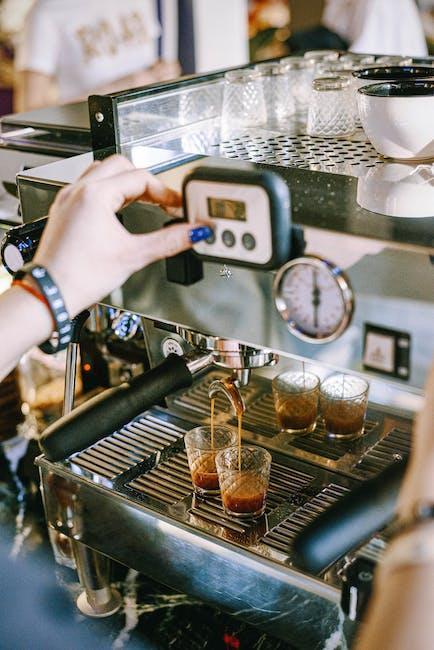Understanding Restaurant Liability Insurance
Restaurant liability insurance is an essential component of risk management for any establishment in the food and beverage industry. Whether you own a small cafe or a fine dining restaurant, understanding the intricacies of restaurant liability insurance is crucial to safeguarding your business from potential financial and legal risks.
What is Restaurant Liability Insurance?
Restaurant liability insurance, also referred to as commercial general liability insurance, is a type of coverage designed to protect food and beverage businesses from the financial implications of certain liabilities. This includes third-party bodily injury, property damage, and advertising injury claims. In essence, it provides financial coverage and legal defense in the event of lawsuits or claims filed against the restaurant.
The importance of liability coverage for restaurants cannot be overstated. Given the nature of the industry, where interactions with customers, food preparation, and serving alcoholic beverages are routine, the potential for accidents and liabilities is significant. Restaurant liability insurance serves as a safety net, offering protection against unforeseen circumstances that could have severe financial repercussions.
Types of Coverage
- General Liability Insurance: This provides coverage for a range of common liabilities, including slip and fall incidents, customer injuries, and property damage resulting from restaurant operations.
- Product Liability Insurance: Specifically covers liabilities arising from food-borne illnesses and other related product hazards.
- Liquor Liability Insurance: Essential for establishments serving alcohol, this coverage applies to claims related to the sale and service of alcoholic beverages.
- Workers’ Compensation: Protects employees in the event of work-related injuries or illnesses, providing medical benefits and wage replacement.
Legal Requirements
State and local regulations mandate certain coverage for restaurants, ensuring a level of protection for both patrons and employees. Understanding the legal requirements is imperative, as failure to meet these standards can result in severe penalties or the suspension of business operations. Minimum coverage limits may vary based on the location and type of establishment, making it essential for restaurant owners to stay informed about their specific legal obligations.
Moving on to our next section, let’s delve into the inherent risks that the food and beverage industry faces and how restaurant liability insurance plays a pivotal role in mitigating these risks.
Risks in the Food and Beverage Industry
The food and beverage industry is inherently prone to various risks and challenges, ranging from customer accidents to employee injuries. Understanding these risks and their potential financial implications is crucial for restaurant owners to appreciate the vital role of restaurant liability insurance in managing and mitigating such liabilities.
Common Risks
Slip and Fall Accidents
Slip and fall incidents are among the most common accidents in restaurants. Spilled liquids, uneven flooring, and cluttered walkways can result in customers and employees slipping or tripping, leading to injuries and potential liability claims.
Foodborne Illnesses
Restaurants are constantly handling and serving food, making them susceptible to foodborne illnesses. In the event of a customer falling ill due to contaminated food, the restaurant could face severe financial implications, including legal fees and settlements.
Liquor-Related Incidents
For establishments serving alcoholic beverages, there is an added risk associated with liquor-related incidents. Overserving patrons, serving minors, or incidents involving intoxicated customers can result in legal and financial repercussions for the restaurant.
Employee Injuries
Restaurant staff are exposed to various hazards, including cuts, burns, and ergonomic injuries. Failing to provide a safe working environment and appropriate safety training can lead to employee injuries and subsequent workers’ compensation claims.
Financial Implications
Understanding the potential financial implications of these risks is paramount for restaurant owners:
Cost of Lawsuits and Legal Fees
Defending against liability claims and lawsuits can be financially draining for restaurants. Legal fees, settlements, and court expenses can have a significant impact on the financial health of the business.
Property Damage Expenses
Accidental damage to property, equipment, or third-party belongings can result in substantial repair or replacement costs for the restaurant.
Medical Expenses for Patrons and Staff
Injuries sustained by customers or employees on the premises can lead to medical expenses and potential compensation claims, adding to the financial burden.
Lost Income Due to Closures
In the event of accidents or legal proceedings, temporary closures can result in lost income and interrupted business operations, further impacting the restaurant’s bottom line.
Understanding these risks and their financial implications emphasizes the critical role of restaurant liability insurance in protecting the business from potential liabilities. Moving forward, let’s delve into the importance of restaurant liability insurance and its role in safeguarding the financial well-being and reputation of food and beverage establishments.
Importance of Restaurant Liability Insurance
Restaurant liability insurance plays a critical role in safeguarding the financial well-being and reputation of establishments in the food and beverage industry. Understanding its significance encompasses protecting the business, meeting legal requirements, and providing peace of mind to restaurant owners and operators.
Protecting Your Business
Safeguarding Against Financial Losses
Restaurant liability insurance serves as a crucial financial safety net, providing coverage for potential liabilities such as customer injuries, property damage, and legal expenses. This protection allows the business to mitigate the financial impact of unforeseen circumstances.
Preserving the Reputation of the Restaurant
In the event of accidents or liabilities, having adequate insurance coverage demonstrates a commitment to accountability and responsibility. This can help maintain the trust and confidence of customers and the community, safeguarding the restaurant’s reputation.
Avoiding Potential Bankruptcy
Without proper liability coverage, the financial implications of legal claims or substantial liabilities could potentially lead to bankruptcy for a restaurant. Restaurant liability insurance acts as a shield against these severe financial consequences.
Meeting Legal Requirements
Compliance with State and Local Laws
Restaurant liability insurance is often a legal requirement imposed by state and local authorities. Adhering to these regulations is essential to avoid penalties, fines, or the suspension of business operations.
Fulfilling Lease and Vendor Insurance Requirements
Many lease agreements and vendor contracts necessitate specific insurance coverage to protect all parties involved. Meeting these requirements is crucial for business continuity and maintaining positive relationships with landlords and suppliers.
Providing a Safe Environment for Patrons and Employees
By having adequate liability coverage, restaurants demonstrate their commitment to providing a safe and secure environment for both patrons and employees. This proactive approach aligns with legal and moral obligations, contributing to the overall well-being of the establishment.
Peace of Mind
Focus on Core Operations
With comprehensive liability insurance in place, restaurant owners and operators can focus on delivering exceptional dining experiences and driving business growth, knowing that they are protected from potential financial hardships.
Managing Risks Effectively
Restaurant liability insurance empowers businesses to assess, mitigate, and transfer risks effectively, ensuring that operations are conducted with a clear understanding of potential liabilities and appropriate protection in place.
Being Prepared for Unexpected Events
In a dynamic industry like food and beverage, unexpected events and liabilities can arise. Having the right insurance coverage provides peace of mind, knowing that the restaurant is prepared for unforeseen circumstances and potential challenges.
Understanding the importance of restaurant liability insurance sets the foundation for prudent risk management within the food and beverage industry. Moving forward, we will explore the crucial considerations involved in choosing the right coverage for your restaurant, emphasizing the need for tailored and comprehensive insurance solutions.
Choosing the Right Coverage
Selecting the appropriate restaurant liability insurance coverage is a pivotal decision for business owners, requiring a comprehensive understanding of their specific needs, associated risks, and available options. This section will explore the key considerations involved in choosing the right coverage to ensure comprehensive protection for the restaurant.
Assessing Your Needs
Size and Type of Restaurant
The scale and nature of the restaurant play a significant role in determining the required insurance coverage. A small cafe may have different risk exposures compared to a large fine dining establishment, necessitating tailored insurance solutions.
Specific Risks and Exposures
Conducting a thorough risk assessment allows restaurant owners to identify and prioritize potential liabilities unique to their operations. Understanding these specific risks is critical in determining the appropriate coverage.
Budget Considerations
Balancing the level of coverage with budgetary constraints is a crucial aspect of the decision-making process. Identifying the optimal coverage that provides comprehensive protection while aligning with financial capabilities is essential.
Comparing Insurance Providers
Researching Reputable Insurance Companies
Thorough research into the reputation, financial stability, and customer service track record of insurance providers is essential. Choosing a reputable and reliable insurer can ensure seamless coverage and claims processes.
Obtaining Multiple Quotes
Seeking quotes from multiple insurance providers allows for a comparison of coverage options, premiums, and additional benefits. This enables informed decision-making based on a comprehensive understanding of available choices.
Evaluating Coverage Options and Exclusions
Closely examining the inclusions and exclusions within each insurance policy is vital. Understanding the extent of coverage, limitations, and any specific exclusions is crucial for identifying the most suitable insurance plan.
Customizing Your Policy
Tailoring Coverage Limits
Adapting coverage limits to align with the identified risks and financial capabilities is essential. Customizing coverage limits ensures that the insurance adequately addresses potential liabilities without overextending the budget.
Adding Endorsements for Specific Risks
Certain endorsements or add-ons may be necessary to address specific risks that are not adequately covered by standard policies. This customization ensures that the insurance policy is tailored to suit the unique needs of the restaurant.
Reviewing and Updating Coverage as the Business Grows
As the restaurant evolves and expands, periodic review and adjustment of insurance coverage become imperative. Ensuring that the insurance policy evolves alongside the business guarantees continued comprehensive protection.
Understanding and addressing these essential considerations is instrumental in selecting the right restaurant liability insurance coverage, providing the necessary protection and peace of mind. In the subsequent section, we will explore the holistic approach to ensuring comprehensive protection through effective risk management strategies and staying informed about industry trends and legal changes.
Conclusion: Ensuring Comprehensive Protection
Effective risk management and staying informed about evolving industry trends and legal changes are critical components of ensuring comprehensive protection through restaurant liability insurance. By implementing proactive strategies and maintaining a deep understanding of the insurance landscape, restaurant owners can safeguard their businesses and mitigate potential liabilities.
Risk Management Strategies
Implementing Safety Protocols and Training
Prioritizing safety measures and thorough staff training can help prevent accidents and minimize potential liabilities within the restaurant environment.
Regular Inspections and Maintenance
Conducting routine inspections and proactively addressing maintenance concerns contribute to maintaining a safe and hazard-free environment for both patrons and employees.
Responsible Alcohol Service Practices
For establishments serving alcoholic beverages, promoting responsible alcohol service practices can help mitigate the risk of liquor-related incidents and liabilities.
Staying Informed
Monitoring Industry Trends and Legal Changes
Remaining vigilant about emerging industry trends, regulatory developments, and legal changes ensures that the restaurant stays aligned with evolving requirements and best practices.
Reviewing and Adjusting Insurance Coverage
Regularly reviewing the effectiveness of the current insurance coverage and making necessary adjustments based on changing business needs and risk exposures is vital for maintaining comprehensive protection.
Seeking Professional Guidance When Necessary
Engaging with insurance professionals and legal advisors when navigating complex liability issues and exploring insurance options can provide invaluable insights and guidance.
By consistently implementing robust risk management strategies and staying well-informed, restaurant owners can strengthen their position in managing potential liabilities and ensuring the long-term stability and success of their establishments.
Recap
In this comprehensive exploration of restaurant liability insurance, we’ve delved into its fundamental definition, the types of coverage it entails, and the importance it holds for safeguarding businesses in the food and beverage industry. We’ve also examined the common risks and financial implications within the industry, underscoring the critical need for appropriate insurance coverage. Furthermore, we’ve highlighted the essential role of restaurant liability insurance in protecting businesses, meeting legal requirements, and providing peace of mind for owners and operators.
Additionally, we’ve provided invaluable insights into the considerations involved in choosing the right insurance coverage, empowering restaurant owners to tailor policies to their specific needs and risk exposures. Finally, we’ve emphasized the significance of risk management strategies and the proactive approach of staying informed about industry developments and legal changes to ensure comprehensive protection.
As the culinary landscape continues to evolve, prioritizing comprehensive restaurant liability insurance and proactive risk management will be imperative for navigating the dynamic challenges within the food and beverage industry and protecting the vitality of restaurants.
Remember, protecting your restaurant is not just about serving great food and creating a welcoming ambiance; it’s also about safeguarding your business from unforeseen risks and liabilities through the right insurance coverage and strategic risk management.







